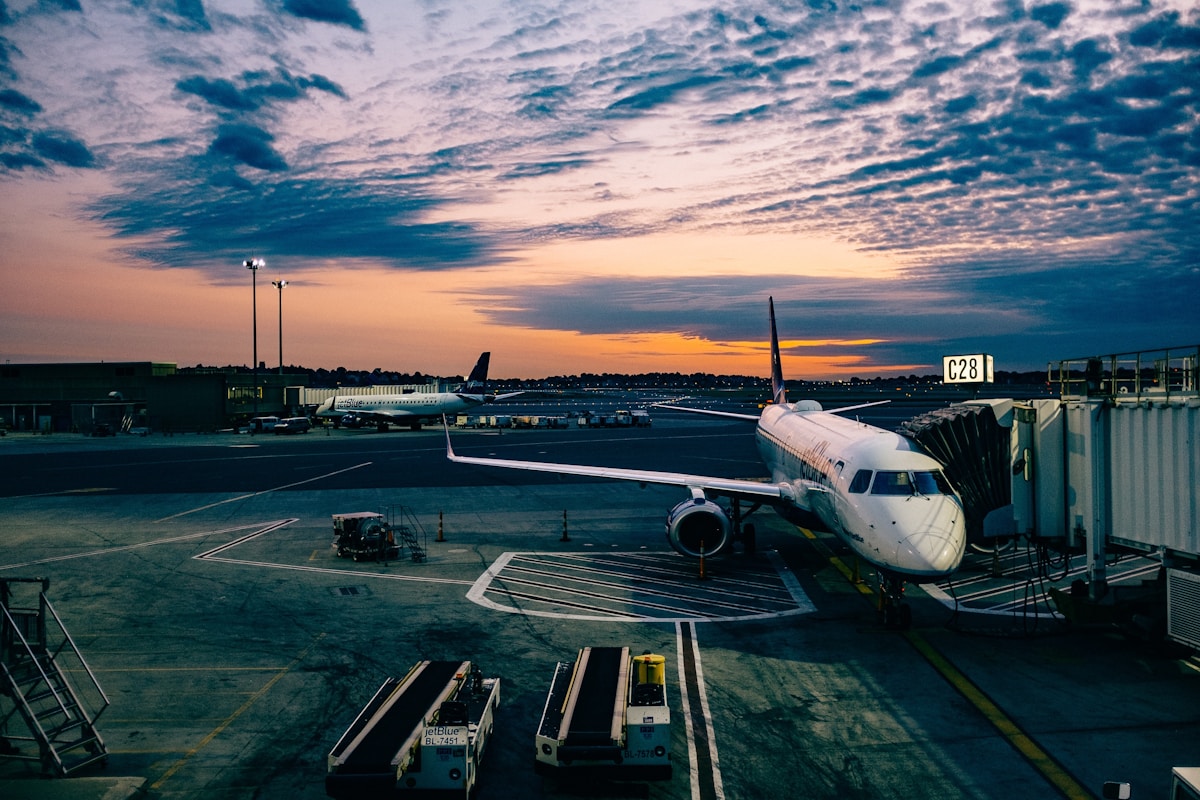Airlines to Gradually Implement Flight Cuts Due to Government Shutdown
Airlines to Gradually Implement Flight Cuts Due to Government Shutdown

The Federal Aviation Administration (FAA) has issued an unprecedented order requiring airlines to gradually reduce flight capacity at 40 major U.S. airports due to the ongoing government shutdown. The phased implementation, beginning Friday, November 7, 2025, marks a historic moment in American aviation as air traffic controllers continue working without pay for the 36th consecutive day.
Quick Navigation
Understanding the Phased Flight Reduction Timeline
Transportation Secretary Sean Duffy announced that airlines will implement flight cuts gradually rather than all at once, providing carriers time to adjust their schedules and minimize passenger disruption. The reduction schedule follows a carefully calibrated approach designed to maintain aviation safety while giving travelers advance notice. CBS News

Week-by-Week Implementation Schedule
- Friday, November 7: 4% reduction in daily flight operations
- Tuesday, November 11: Cuts increase to 6% capacity reduction
- Thursday, November 13: Airlines must reduce operations by 8%
- Friday, November 14: Full 10% capacity reduction takes effect
This graduated approach allows airlines to strategically cancel flights while maintaining the integrity of their route networks. According to aviation analytics firm Cirium, the 10% reduction could affect as many as 1,800 flights daily, impacting over 268,000 airline seats across the country.
The 40 High-Traffic Airports Facing Flight Reductions
The FAA's emergency order targets the nation's busiest aviation hubs, where air traffic controller staffing shortages pose the greatest safety risks. Major metropolitan areas will see significant impacts as airlines scramble to adjust their schedules. Axios

Major Hubs Included in FAA Order
The comprehensive list includes America's busiest airports serving millions of passengers monthly:
- Hartsfield-Jackson Atlanta International (ATL) - Georgia's primary hub
- Chicago O'Hare International (ORD) - Major Midwest connector
- Dallas Fort Worth International (DFW) - Texas aviation center
- Los Angeles International (LAX) - West Coast gateway
- New York area airports - LaGuardia (LGA), JFK, and Newark (EWR)
- Denver International (DEN) - Mountain region hub
- Charlotte Douglas International (CLT) - Southeast connector
- San Francisco International (SFO) - Bay Area gateway
The order also affects cargo hubs in Memphis, Tennessee (FedEx operations) and Louisville, Kentucky (UPS distribution center), potentially impacting package delivery services nationwide.
How Major Airlines Are Implementing Flight Cuts
Airlines across America are taking different approaches to comply with the FAA's mandate while attempting to minimize disruption to travelers. Each carrier is strategically selecting which routes to cancel based on their network structure and passenger demand. Reuters
United Airlines Strategy
United Airlines CEO Scott Kirby announced the carrier would protect its hub-to-hub flying and long-haul international routes. The airline expects to cancel approximately 200 flights daily this weekend, focusing cuts on regional flying and non-hub domestic routes to preserve network connectivity.
American Airlines Approach
American Airlines plans to cancel roughly 220 flights daily from Friday through Monday, representing 4% of scheduled operations at the affected airports. The carrier emphasized that "the vast majority of our customers' travel will be unaffected," with all long-haul international service continuing as scheduled.
Southwest Airlines Response
Southwest proactively canceled 120 flights on Friday, affecting 34 of the more than 117 airports it serves. The airline expects fewer than 100 cancellations on Saturday and is communicating directly with affected customers as cancellations are finalized.

Delta Air Lines Position
Delta Air Lines stated it expects "the vast majority of our flights as scheduled, including all long-haul international service" to operate normally. The carrier is working to minimize customer impact while keeping safety as its top priority.
Your Rights and Options as an Affected Passenger
If your flight is canceled or significantly delayed due to the government shutdown-related cuts, federal regulations and airline policies provide several protections and options for travelers.
Refund and Rebooking Rights
All major carriers have announced flexible policies for affected passengers:
- Full refunds available: Even for non-refundable tickets if your flight is canceled
- No change fees: Airlines are waiving fees for passengers who want to modify travel plans
- Automatic rebooking: Most airlines will rebook you on the next available flight
- Alternative arrangements: Passengers can choose different flights or request full refunds
Expert Travel Tips
Travel industry professionals recommend taking proactive steps to protect your travel plans:
- Monitor your airline's mobile app for real-time flight status updates
- Track your inbound flight to anticipate potential delays
- Avoid checking luggage if possible to maintain flexibility
- Pack essentials including medications in carry-on bags
- Consider booking backup tickets for critical travel needs
- Arrive at the airport earlier than usual to account for longer security lines
"If you are headed to a wedding, funeral or something you must be somewhere for in the next few days — given the risk of flights canceling, I would suggest passengers buy a backup ticket on another carrier." - Barry Biffle, Frontier Airlines CEO
The Safety Rationale Behind Flight Reductions
FAA Administrator Bryan Bedford, citing nearly four decades of aviation experience, stated he has never witnessed measures of this magnitude. The decision stems from concerning data about air traffic controller performance and staffing levels during the prolonged shutdown.

From Friday through Sunday of last week, at least 39 air traffic control facilities reported potential staffing limits—significantly above the pre-shutdown average of 8.3 facilities. This dramatic increase prompted the FAA's proactive intervention to prevent system degradation.
"We are seeing signs of stress in the system, so we are proactively reducing the number of flights to make sure the American people continue to fly safely," Bedford stated. The FAA has warned it may take further action if air traffic issues persist.
Frequently Asked Questions About Flight Cuts
Are international flights affected by the FAA order?
No, the Transportation Department's order specifically exempts international flights from the capacity reductions. Airlines have discretion to cancel domestic flights while maintaining all long-haul international service.
What happens if airlines don't comply with the reduction order?
Airlines that fail to meet reduced capacity requirements face civil penalties up to $75,000 per flight over the threshold. Small business carriers face fines up to $16,630 per excess flight.
How long will these flight reductions continue?
The cuts will remain in effect until the government shutdown ends and air traffic controller staffing stabilizes. The reductions are designed to continue indefinitely until safety data improves.
Will Thanksgiving travel be affected by these cuts?
Yes, with Thanksgiving just weeks away, travelers should expect continued disruptions if the shutdown persists. The holiday period typically sees increased travel demand, which could compound the impact of reduced flight capacity.
How can I find out if my specific flight is canceled?
Check your airline's mobile app or website directly, as carriers will proactively contact affected passengers. You can also monitor FlightAware or similar flight tracking services for real-time status updates.
Looking Ahead: What Travelers Should Know
As the government shutdown enters record-breaking territory, aviation experts warn that flight disruptions may intensify before improving. Nearly a quarter of flights at 16 of America's busiest airports arrived late in the week after air traffic controllers missed their first paycheck—a significant increase from the 18% late arrival rate in September.
The situation has prompted urgent calls from airline industry groups, labor unions, and travel associations for Congress and the White House to reach a funding agreement. Until then, passengers should remain vigilant, flexible, and prepared for continued aviation disruptions across the United States.
Stay Informed - Share This Critical Update
Help fellow travelers navigate the shutdown-related flight cuts by sharing this comprehensive guide. Knowledge is power when travel plans are uncertain.
📘 Share on Facebook | 🐦 Share on Twitter | 💼 Share on LinkedIn
.jpeg)